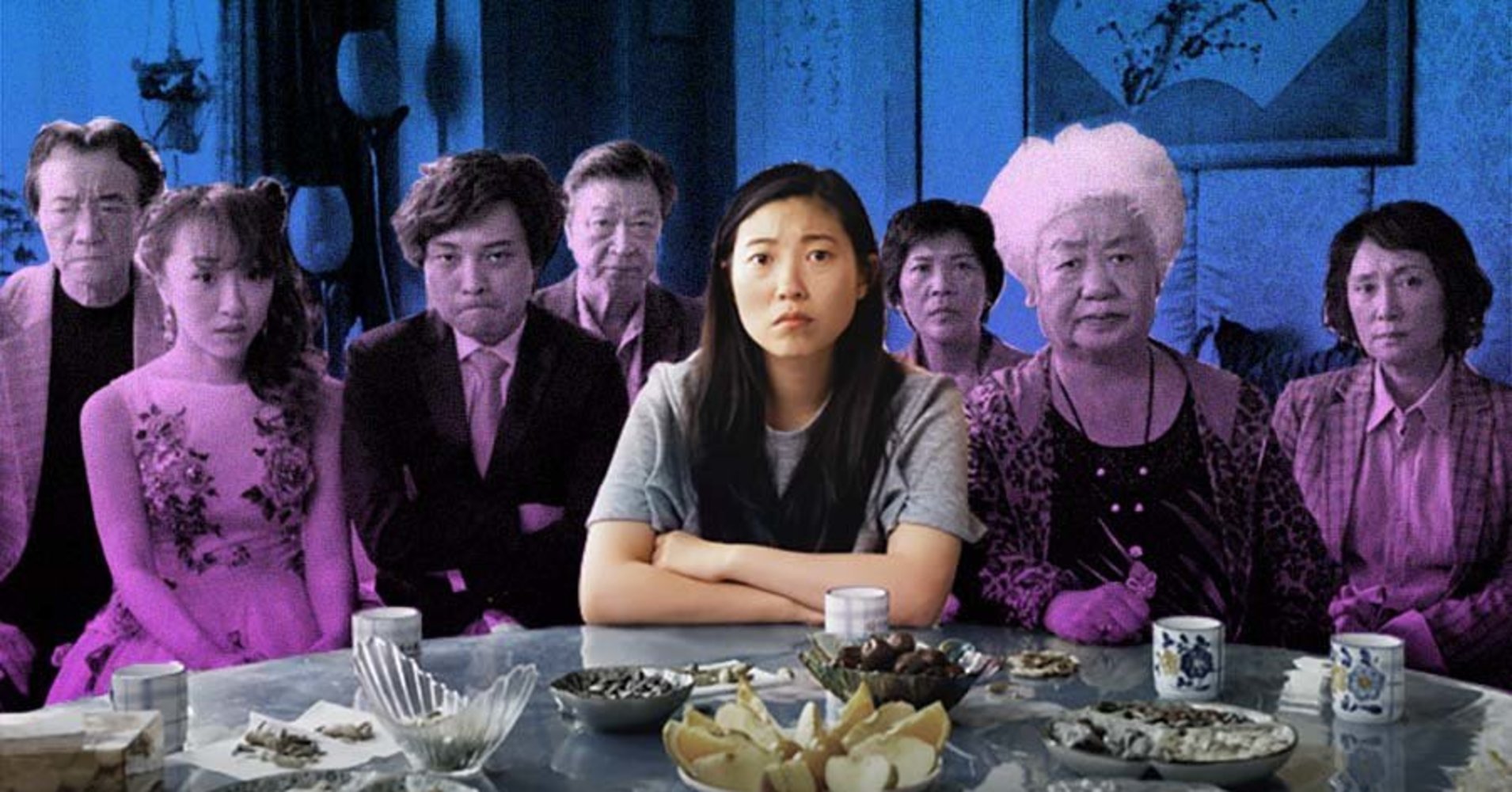[ad_1]
The Sundance Film Festival, nestled in the peaceful Utah mountains during the frenzy of the annual Oscar derby, provides a portrait of the upcoming year in independent cinema. From the looks of it, 2019 has plenty to offer, including Awkwafina as a leading lady, Adam Driver as a political whistleblower and Demi Moore as a corporate megalomaniac.
Sundance is unwinding with a few high-profile deals to its name, including Amazon’s surprising payouts (between $13 million and $14 million) for the Mindy Kaling show-biz satire “Late Night,” the political thriller “The Report” and the Jillian Bell body-image comedy “Brittany Runs a Marathon.” Meanwhile, the gentrification dramedy “The Last Black Man in San Francisco” and the moody British thriller “The Souvenir” kindled buzz on the ground, as did the documentaries “Cold Case Hammarskjöld,” “Ask Dr. Ruth,” “One Child Nation” and the Alexandria Ocasio-Cortez profile “Knock Down the House.” If a peppy Bruce Springsteen singalong is more your thing, there’s “Blinded by the Light,” the latest from “Bend It Like Beckham” director Gurinder Chadha.
It’s impossible to see everything on Sundance’s slate in less than a week, but here’s the best of what I caught during the festival.
“The Farewell”
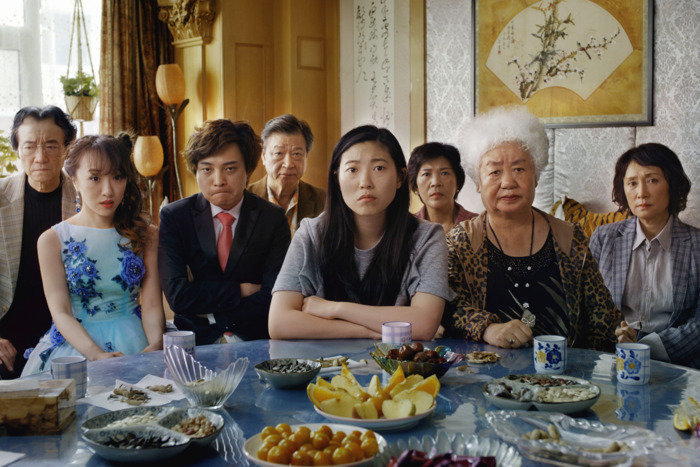
“The Farewell,” the sophomore feature from Lulu Wang (“Posthumous”), opens with droll text that would seem at home in a Coen brothers movie: “Based on an actual lie.”
The lie in question concerns a Chinese family that opts to conceal from their eldest matriarch (Shuzhen Zhou, excellent) a cancer diagnosis that could end her life. This is a common practice in China, the film tells us; without all the prolonged adieus, death doesn’t sting as hard. But lying by omission isn’t easy for Billi (Awkwafina), a Brooklyn transplant who broadcasts her emotions and has a tight relationship with her grandmother, whom everyone calls Nai Nai. Despite admonishments from her mother (Diana Lin), who doesn’t believe she can keep the secret, Billi rushes home for one final family reunion, knowing she will say goodbye without actually saying goodbye.
Billi is Wang’s analog; before turning it into an autobiographical script, the filmmaker told the story on “This American Life” in 2016. That personal touch is evident in the way Wang balances situational comedy and deep-seated drama, crafting a loveliness that feels intimate and specific yet endlessly relatable to anyone who has witnessed a loved one’s final days. But the movie is no funeral: Events revolve around a family wedding that touches on middle-class anxieties, generational differences and China’s mouth-watering food culture ― grist for hilarity and waterworks alike. Wang proves to be a superb storyteller, able to give her characters dimensions simply by observing their mannerisms and accentuating their quirks.
After scene-stealing breakouts in last year’s “Ocean’s 8” and “Crazy Rich Asians,” Awkwafina, née Nora Lum, is making a wise, delicate pivot that reconfirms her comedic talent but offers new layers as an actress. It’s a quieter role, less dependent on one-liners and flashy gestures ― a perfect way forward for both her and Wang, who is easily Sundance’s key director to watch. Indie studio A24 snatched up the movie for a reported $6 million, giving its “actual lie” what will hopefully be a long shelf life.
“The Report”
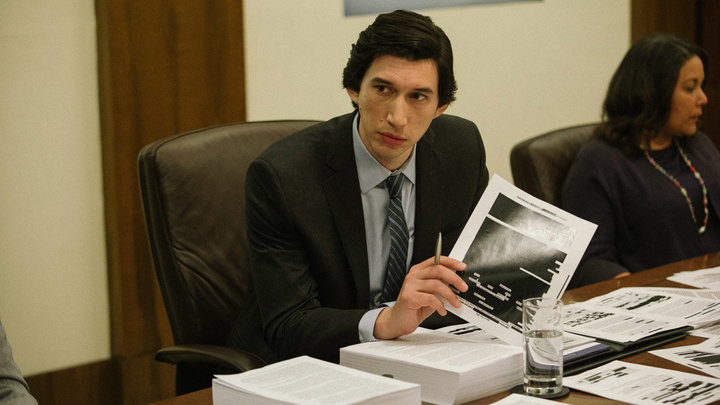
Is it true that the best political thrillers feature a whispery scene in the shadows of a parking garage where secrets are exchanged? After “The Report,” I’m starting to think so. When Senate investigator Daniel Jones (Adam Driver in a commanding lead role) meets a New York Times reporter (Matthew Rhys) to tip him off that the American government is misleading the public about its use of post-9/11 torture practices in the Middle East, director Scott Z. Burns invokes the genre’s crown jewel, “All the President’s Men.” It’s the sexiest a movie can get without taking its clothes off.
“All the President’s Men” is the great political thriller, as well as the great process movie — two genres that have also blended to exquisite results in “The Parallax View,” “Thirteen Days” and “The Post.” Add “The Report” to the list. Burns’ sober, briskly paced drama follows Jones as he goes to lengths to research and disclose the inhumane acts the CIA ordered in hopes of extracting information from suspected al Qaeda terrorists. The film’s intelligence makes “Vice” look like a dilapidated dunce cap, largely because it indicts leaders like Dick Cheney without needing to turn them into cartoons (or to include them as characters at all). Here, the heroes have more to say about the state of America’s geopolitical horrors than any “Macbeth”-style villains. Enter Dianne Feinstein, the Senate Intelligence Committee chair played by a steely Annette Bening (Oscar time!), to whom Jones answers.
Burns, a Steven Soderbergh acolyte who wrote “Side Effects” and “Contagion,” has made a dense, star-studded film that flows with spry energy, even when it veers into book-report territory. “The Report” connects dots all the way to the Obama administration and undercooked terrorism content like “Zero Dark Thirty” and “24”; no one emerges unscathed. Like everything America has undergone in the 21st century, it is far too sophisticated for pat simplicities. The truth is complex and disarming — but it can also be entertaining as hell.
“Corporate Animals”
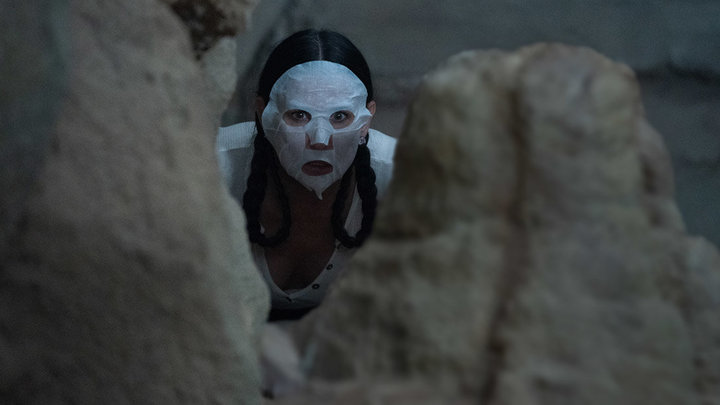
Patrick Brice is among my favorite underrated (and understated) filmmakers. In “The Overnight,” he gave us a comedy of manners that unfolds across one capricious evening. With the “Creep” movies, he tells a home-invasion horror story that rises above its found-footage trappings. And in “Corporate Animals,” Brice takes a workplace farce out of the office and into a cave, employing a goofy absurdism to arraign New Age brands, corporate malfeasance and celebrity CEOs.
The vainglorious chief executive, Lucy, is played deliciously by Demi Moore, who has long deserved a comeback. The script, written by “Peep Show” alum Sam Bain, turns Lucy into a Gwyneth Paltrow type leading a Goop-esque lifestyle outfit whose signature product is edible cutlery — a laughable idea stolen from an underling (Karan Soni) she slept with. The movie opens with Lucy’s staff embarking on one of those outdoor team-building retreats in dusty New Mexico. When it’s time to go cave-diving, she insists their guide (Ed Helms) take them on the hardest course available, despite their all being novices. Things immediately turn disastrous; they wind up stuck underground for days, left to feast on each other metaphorically and… well… it’s best to discover the details for yourself. They grow increasingly clever and increasingly surreal, thanks to the rat-a-tat dialogue and top-notch comic work from Moore, Soni, Jessica Williams, Martha Kelly, Nasim Pedrad and “American Vandal” star Calum Worthy. It’s a stoner comedy without any weed and a satire without too many ham-fisted Big Ideas.
When I chatted with Moore at the premiere’s after-party, she likened her character to a certain blowhard whose corporate notoriety landed him in the White House. We can talk more about that when the movie opens, but let’s just say it might be nice if things ended for him the way they do for Lucy. “Corporate Animals” is a hoot, rechristening Brice as a master of unpretentious gems.
“Jawline”

Enough can’t be said about social media influencer culture: the economics surrounding the nascent enterprise, the artificiality of the “just stay positive” messages that provide grist for platforms like Instagram and YouNow, the catalyst that vaults teenagers to miniature superstardom so they can later suffer rejection they’re ill-equipped to handle. The digital world is cold, no matter how many sunny photos or smiley videos a person posts — and “Jawline” understands that better than anything else that has tackled the phenomenon.
The protagonist of Liza Mandelup’s handsome documentary is Austyn Tester, a Tennessee-based teen with a limiting home life who enjoyed a stint of internet fame. Like the many other baby-faced boys who attract fan bases simply by being themselves — or simulacra of themselves — before a camera, Austyn has a stable of girls who treat him like a movie star, begging for a shout-out when he broadcasts a live video or posts a photo on Instagram. He’s nice and charming if not particularly original, much like his counterparts, many of whom land management deals before they even know how to interpret the contracts they’re signing. Some get screwed financially, others emotionally. Others still become full-on brands, providing a fleeting bright spot for teens who are bullied or depressed. But when the bottom drops out, where is there to go?
Mandelup explores these questions from multiple vantages without resorting to grandiose generalizations about Today’s Youth. She indicts the social media infrastructure but humanizes the very real people within it, almost as if last year’s “Eighth Grade” were nonfiction. The conclusions are left for you to interpret; there are no experts or sociologists to wax on about How We Got Here and Where We Are Going. “Jawline” manages to make us worry for modern teen life as it drifts further from traditional popular culture, turning promising kids into one-trick ponies — but the film never preaches or overreaches. Instead, it does what a documentary is meant to do: document.
“Honey Boy”
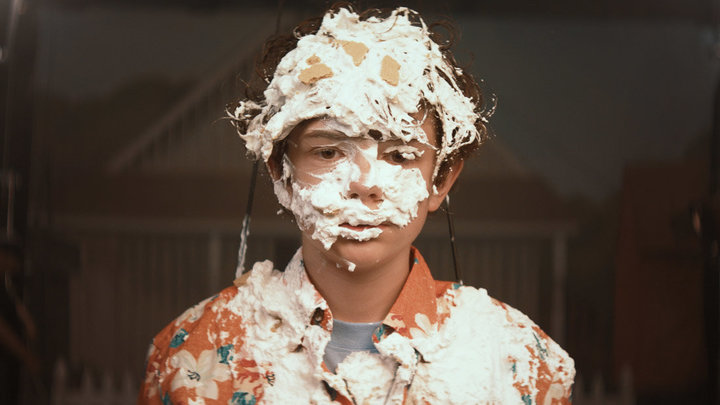
Shia LaBeouf has spent the better part of his life inspiring unfavorable headlines, having progressed from “Even Stevens” wunderkind to attention-seeking troublemaker. He reckons with that trajectory, and with his spiral into substance abuse and depression, in “Honey Boy,” LaBeouf’s autobiographical debut screenplay. The results are part therapy session, part memoir, part plea for forgiveness. Is he forgiving himself, or asking us to do so? Is he absolving his irascible, unreliable father, portrayed as a drug-addled stage parent, or indicting him as the root of LaBeouf’s troubles? Probably all of the above.
In a curious exercise that shines through and through, LaBeouf plays an analog of his own father, with gifted 13-year-old Noah Jupe (“A Quiet Place”) portraying a LaBeouf avatar named Otis who stars on a “Stevens”-type sitcom. Together, the two actors are dynamite, as is Lucas Hedges, who plays Otis in his late teens, once he’s become a blockbuster star facing his own alcoholic demons and volcanic tempers. But “Honey Boy” isn’t just some butch vanity project; it’s a moving portrait of fame, family and personal growth, directed with a poetic touch by Alma Har’el, who lends a light, sympathetic hand to what at times plays like a devastating symphony.
“Leaving Neverland”
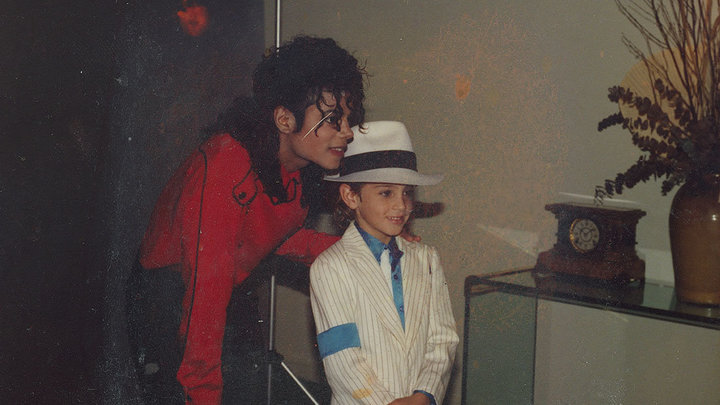
Watching your heroes fall is never easy, and for fans of Michael Jackson, “Leaving Neverland” will prove to be a particularly difficult experience.
Dan Reed’s heartbreaking four-hour documentary centers on two men who allege they were sexually abused by Michael Jackson, repeatedly, before puberty. Reed applies a delicate hand in chronicling Wade Robson and James Safechuck’s experiences with Jackson, who became a mentor and pseudo-family member to each before allegedly introducing them, separately, to masturbation, pornography, sex and more. Reed evokes in his two subjects, as well as various relatives who saw Jackson as a harmless idol with a childlike complex, a raw candor that challenges anyone to doubt their accounts. Instead of evaluating Jackson’s cultural legacy, “Leaving Neverland” focuses squarely on Robson and Safechuck — the way they trusted Jackson and treasured his friendship, only to be later cast aside for younger boys and left to wonder what went wrong. It wasn’t until their 30s when they realized the episodes entailed textbook abuse.
“Neverland” is a gutting watch, split across two halves. Jackson’s loyal defenders will pick holes in the information presented, as Reed opted not to feature the interviews he conducted with detectives, trauma experts and others who might help to corroborate Robson and Safechuck’s accounts. But at four hours, the film is so dense with details that it becomes, in my estimation, unimpeachable. It is pieced together in a way that aligns Robson and Safechuck’s stories in damning ways, especially since the two didn’t know each other when they were inducted into Jackson’s inner sanctum. It’s graphic without being prurient, bold without being unnecessarily provocative. And it’s a must-watch for anyone interested in understanding what sexual abuse does to a person’s life, and why celebrity worship needs limits — which is to say it’s a must-watch for everyone.
A few other performances to look out for
• Ashton Sanders, so effective in the middle section of “Moonlight,” leads a modern adaptation of “Native Son,” swaggering his way to security before learning that living in a black body is an inherent risk.
• The Mindy Kaling-written “Late Night” doesn’t always work, but Emma Thompson sure does. With expert timing, she plays a veteran late-night host with an icy offstage persona and a biting tongue.
• We’ve never seen Lupita Nyong’o like this ― “this” being a madcap comedy in which she beheads zombies during an outbreak that interrupts her kindergarten class’ petting-zoo field trip. In front of her students, she is impossibly rosy; upon turning away, she is all stony determination. It’s a fun balance from someone known for austere drama.
• Perhaps “Saturday Night Live” is limiting Pete Davidson more than we know. Turns out he has an engaging screen presence and a dimensionality that “SNL” doesn’t always let him showcase, lending his immature “Big Time Adolescence” character an electricity that surpasses the movie’s clichés.
• In the messy horror whatsit “Wounds,” Armie Hammer plays the quintessential overconfident white man ― and what do you know, he’s perfect.
• Jennifer Kent is following up “The Babadook” with “The Nightingale,” a left-field revisionist Western featuring Aisling Franciosi (Lyanna Stark on “Game of Thrones”) on a brutal revenge quest through colonized Australia.
[ad_2]
Source link

